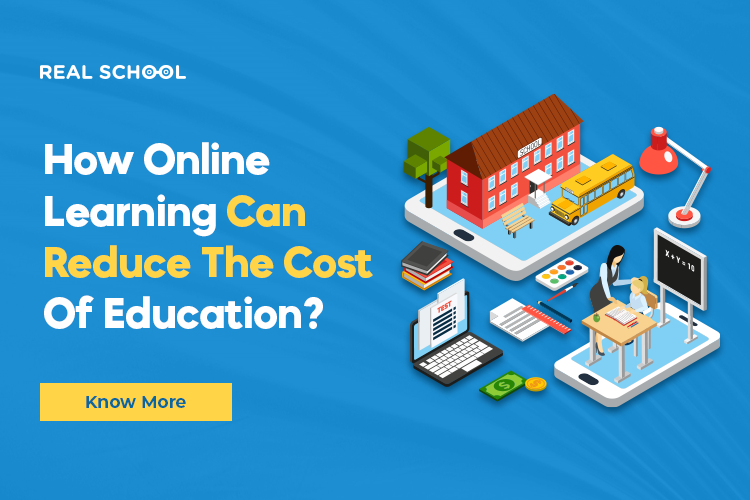Education has always been considered a crucial aspect of a person’s life, but the cost associated with it has been a significant concern for many individuals. However, with the rise of technology, online learning has become an accessible and cost-effective alternative to traditional education.
In this blog, we will explore the various benefits of online education, with a specific focus on how it can reduce the cost of education. From lower tuition fees to reduced living expenses, we’ll delve into the ways in which online learning can help individuals achieve their academic goals without breaking the bank. Join us as we uncover the advantages of online education and how it can transform the educational landscape.
Also Read: What Makes a Good STEM Teacher? How to Become a STEM Teacher?
The Benefits of Online Education
Online education has become increasingly popular in recent years, and for a good reason. Here are some of the benefits of online education:
- Flexibility: Online education allows students to learn at their own pace and on their own schedule. This is particularly useful for working professionals, parents, or individuals who have other commitments that make attending traditional classes difficult.
- Accessibility: Online education makes learning accessible to individuals who live in remote areas, have mobility issues, or have other disabilities that make attending traditional classes challenging.
- Affordability: Online education is often more affordable than traditional education. Students can save money on transportation, textbooks, and other expenses associated with attending classes in-person.
- Variety: Online education provides a wide variety of courses and programs to choose from, many of which may not be available in traditional institutions.
- Personalized learning: Online education allows students to customize their learning experience based on their interests, strengths, and weaknesses. They can choose the courses they want to take and complete assignments and assessments at their own pace.
- Networking opportunities: Online education provides networking opportunities with individuals from different parts of the world. Students can interact with their peers, professors, and industry professionals, expanding their knowledge and skillsets.
Overall, online education provides a flexible and affordable alternative to traditional education, allowing individuals to pursue their academic and professional goals from anywhere in the world.
Also Read: Online Spoken English Classes for Kids: Help your Kids Ace it with Personalised Mentoring
Cost of Education in India
The cost of education in India varies widely depending on the level of education and the institution. Primary education is generally free or has a nominal fee, while secondary and higher education can be much more expensive.
In government-run colleges and universities, the cost of education is relatively affordable, with annual tuition fees ranging from a few thousand to several tens of thousands of rupees. However, in private institutions, the cost of education can be significantly higher, with tuition fees ranging from a few lakhs to several lakhs of rupees per year.
Apart from tuition fees, other expenses such as textbooks, accommodation, food, and transportation also add up to the overall cost of education. The cost of living in major cities can be particularly high, making it even more challenging for students from lower-income families to access quality education.
Despite the government’s efforts to make education accessible to all, the cost of education remains a significant barrier for many students in India. As a result, many students rely on scholarships, loans, and other financial aids to pursue their academic goals.
Also Read: Why are Good Communication Skills Important for Teachers? How to Teach Communication Skills to Kids?
How Online Learning Can Reduce The Cost of Education?
Online learning can significantly reduce the cost of education in several ways:
- No physical infrastructure costs: Online learning eliminates the need for physical infrastructure such as classrooms, libraries, and laboratories, reducing the cost of maintaining and operating these facilities.
- Lower tuition fees: Online courses often have lower tuition fees compared to traditional courses. Online courses can be designed and delivered at scale, allowing institutions to reduce the cost per student.
- No transportation costs: Online learning eliminates the need for students to commute to and from the institution, saving them money on transportation costs.
- Reduced living expenses: Online learning allows students to learn from anywhere, eliminating the need for them to relocate or pay for on-campus accommodation.
- No textbook costs: Many online courses provide digital textbooks and learning resources, eliminating the need for students to purchase expensive physical textbooks.
- Faster completion: Online courses can be completed faster than traditional courses, allowing students to complete their education in a shorter time frame and save money on tuition and living expenses.
Overall, online learning offers a cost-effective alternative to traditional education, making it more accessible to a wider range of individuals. By reducing infrastructure, transportation, and living expenses, online learning can significantly reduce the overall cost of education.
Conclusion
In conclusion, online learning has revolutionized the way we approach education, offering a flexible, accessible, and cost-effective alternative to traditional education. The benefits of online education are numerous, including reduced infrastructure costs, lower tuition fees, no transportation costs, and reduced living expenses, among others.
Online learning also provides personalized learning experiences, a wider variety of courses and programs, and networking opportunities with individuals from around the world. With the rising cost of education being a significant concern for many students and families, online learning has emerged as an effective solution to make quality education accessible to all. As technology continues to advance, we can expect online learning to play an increasingly important role in transforming the educational landscape and making education more accessible and affordable than ever before.







